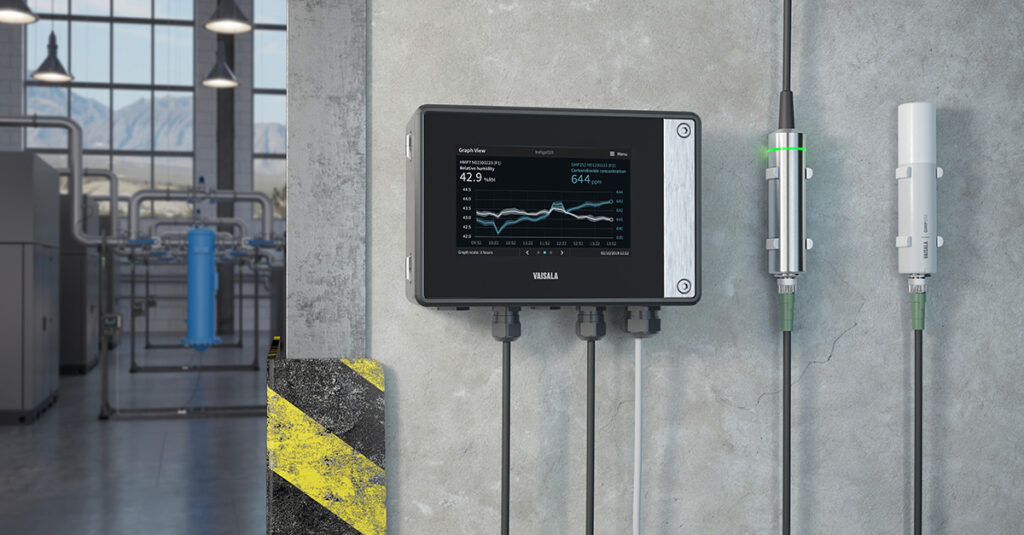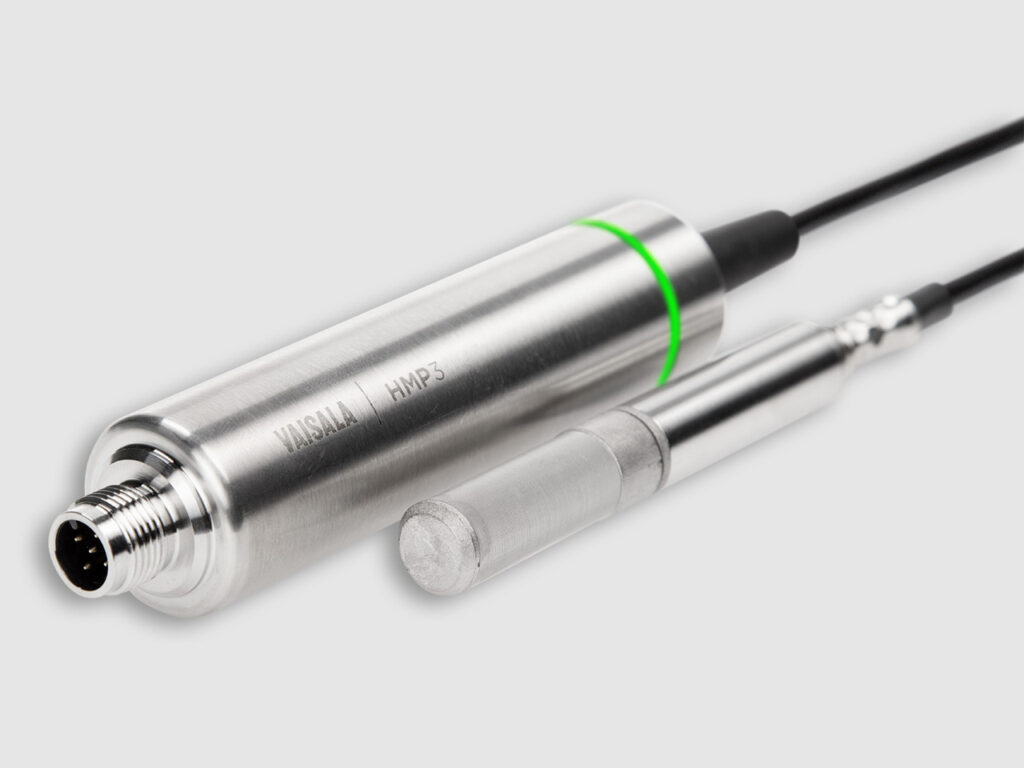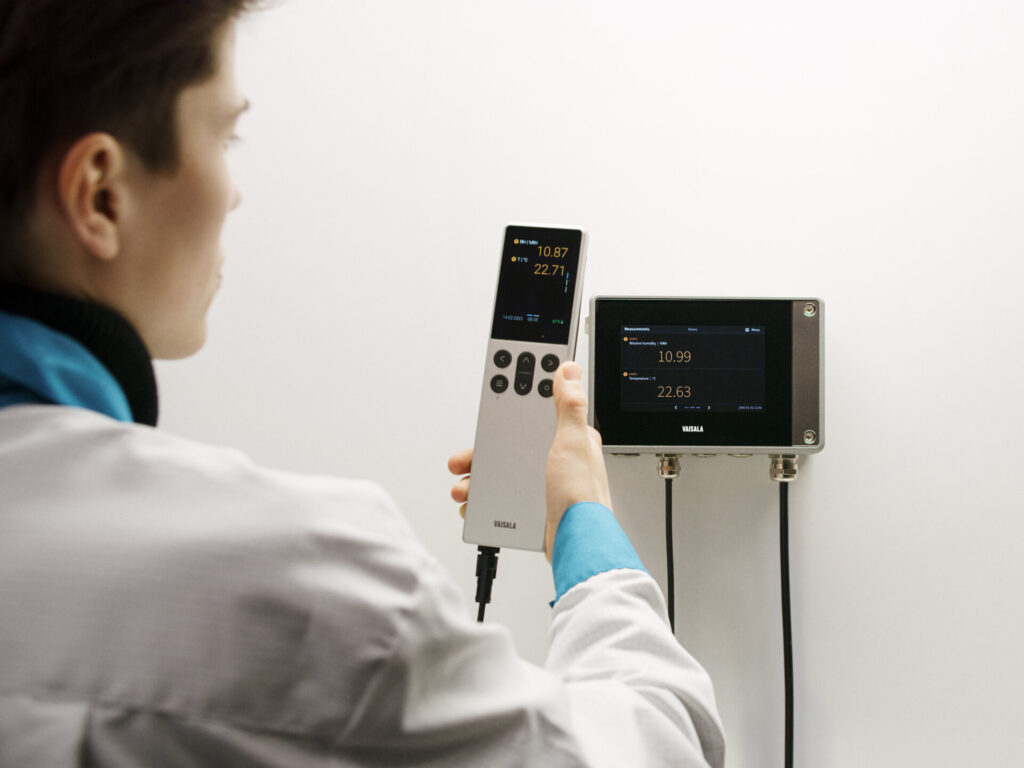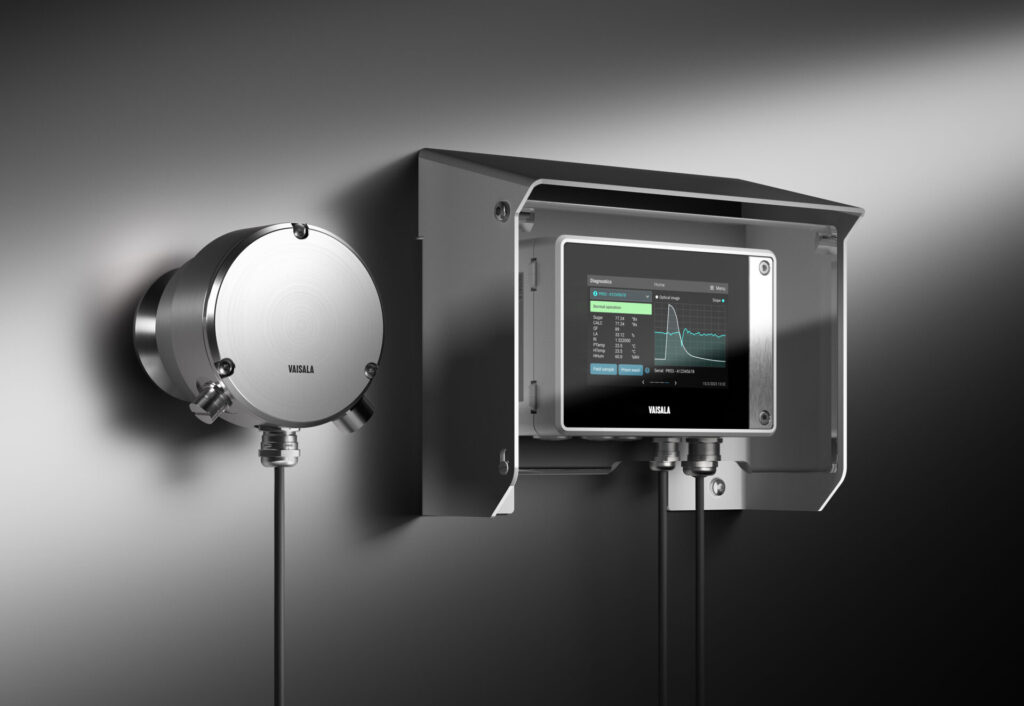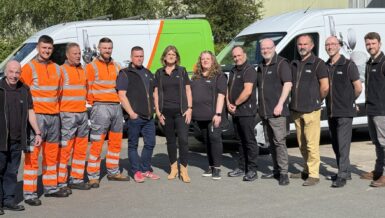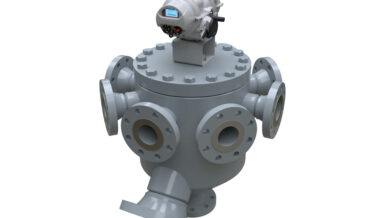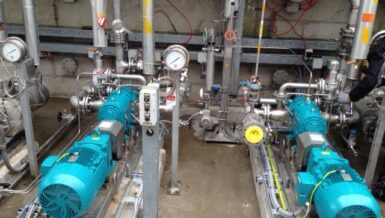In addition to sensors, the company also develops connectivity and data management solutions. While it is essential for data to be delivered to the right place at the right time, it is vitally important that the data is correct. To achieve this, the sensor is the most important part of the data chain, so it must be accurate, stable and reliable in the long-term, without the necessity for frequent re-calibration.
Vaisala’s technologies measure some of the most popular and important industrial parameters, including humidity, dew point, temperature, CO2, pressure, hydrogen peroxide, oil moisture and liquid concentration.
Modular systems for simplicity
To enhance the ease of use and scalability of monitoring systems, Vaisala developed the Vaisala Indigo family of products. Indigo is a modular, customizable instrument platform including interchangeable smart probes, transmitters, wireless connectivity and software for easy interfacing and monitoring of data. Every member of the Indigo family is fully compatible and recognised by the other members of the family, which means that, for example, new or replacement probes or transmitters can be easily added or swapped in.
Indigo users benefit from enhanced ease of use for a number of reasons. First and foremost, Vaisala sensors are extremely stable and less prone to drift, which means that calibration is frequently a simple check to ensure that the sensor is still performing to specification. Vaisala also provides portable verified calibration instruments to further simplify the process, and with easily swappable probes, maintenance downtime is either reduced or prevented entirely.
Vaisala’s chemical industry applications
With a comprehensive range of measurement parameters, Vaisala supplies technologies for a wide variety of applications in the chemical sector:
- Drying – Chemicals are frequently dried, so Vaisala’s humidity and temperature probes are specifically designed to withstand harsh process conditions such as high temperature, high pressure, condensing moisture and/or aggressive chemicals. Instruments with Vaisala HUMICAP® and DRYCAP® technologies also include a chemical purge feature, for when sensors are exposed to solvents and vapors that may enter the polymer and change the sensor’s electrical properties.
- Storage – The longer a chemical product is stored, the more important it is to ensure optimal storage conditions. Accurate and reliable humidity and temperature monitoring is therefore essential for safety reasons and to protect end-product quality. Many chemicals are sensitive to humidity. For example, some chemicals may react with water, causing the release of toxic fumes or even an explosive chemical reaction.
- Caking – Powdered products can be susceptible to humidity, forming lumps which hamper handling and transportation.
Liquid measurements in the chemical industry can be particularly challenging. However, Vaisala’s inline process refractometers are able to measure concentration in a wide variety of process liquids. The measurement technology, which is based on the refractive index (RI) of a liquid, is very accurate and reliable.
RI is a physical property of a liquid, proportional to the concentration, and can be described as the bending power of light at the surface of a liquid. RI is used within many different processes, delivering real-time data that can be utilised to deliver rapid insights for improved process control.
The key advantage of refractometry, in comparison with other methods, is that it is not susceptible to interference from bubbles and suspended solids, and does not suffer from drift. Importantly, Vaisala’s sanitary refractometers are able to continuously monitor Total Solids (TS) and Brix (dissolved solids) concentrations, and onsite verification is quick and easy to perform using standard refractive index liquids.
Vaisala’s Polaris™ family of 5th generation modular process refractometers have been designed for reliability and tested in the harshest conditions. Connectivity options include mA, HART, and Modbus RTU, so they can be easily integrated into data management systems. The refractometer can be interfaced directly, or it can be connected to a Vaisala Indigo520 transmitter, which has both analog and digital output capability, as well as data storage and a graphical display.
With applicability to many different processes, Vaisala’s Polaris™ refractometers can be implemented in a modular manner, which means that they can be applied to any size of process.
Real-time measurements enable real-time control which means that process control is optimized because each step of a process starts and stops at exactly the right moment, which prevents excessive energy use while eliminating the process management errors that cause product (and energy) wastage.
Typical applications for liquid measurements:
- Chemical reaction end-point – Polaris utilizes robust optical technology to measure the progress of chemical reactions, and thereby enable process optimisation to reduce waste, protect product quality, save energy and lower costs.
- Mixing/blending – Again, continuous liquid measurements with refractometers enable efficient process control.
- Filtration/separation – Suspended solids are frequently removed from liquids by filtration, precipitation or coagulation. For example, particles are removed from pure water systems that are used in operations such as cooling, manufacture and cleaning. Continuous monitoring with Polaris enables the determination of the correct, compliant level of purification.
- Quality control – The optical characteristics of many final products are directly proportional to product quality, so Polaris refractometers are used to ensure consistent product quality in applications such as polymerization.
- Distillation/dilution – Distillation is used to separate alcohol from a fermented product and to separate different alcohols – such as methanol, ethanol, and propanol – from each other. Many concentrated chemicals also need to be diluted before use, and the dilution process can be monitored by Polaris refractometers in applications such as the autoxidation process in hydrogen peroxide production.
- Product identification – For safety reasons and to avoid cross-contamination, it is critical to ensure that the correct chemical is fed to the correct tank during loading, unloading, or custody transfer. In-line Vaisala Polaris process refractometers are able to differentiate liquid chemicals based on their distinctive refractive index.
A key feature of Vaisala’s Polaris in-line process refractometers is that they can withstand corrosive chemicals and high temperatures thanks to their digital measurement principle, and measurements are not affected by air bubbles or the color of the liquid being measured. If necessary, a wash system can also be included to keep the Polaris prism clean, thereby ensuring accurate measurement.
Summary
In common with many other sectors, the chemical industry relies heavily on accurate measurements to improve productivity and product quality, to optimise process efficiency, reduce waste and save energy. However, the achievement of all these goals relies on accurate, reliable data from sensors, which is why Vaisala places such a high degree of importance on sensor quality.
